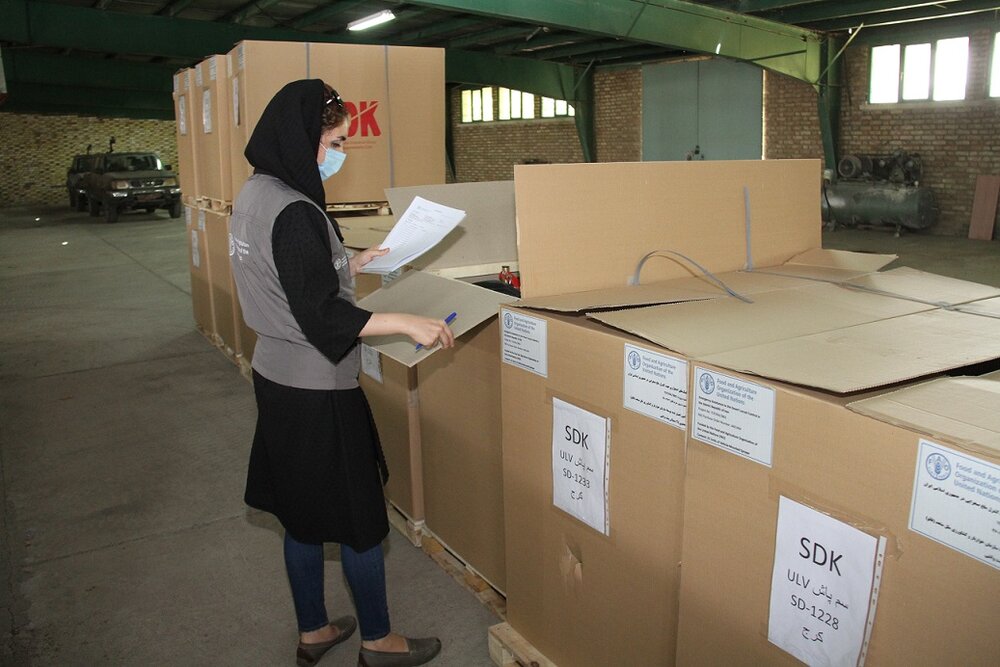FAO delivers first batch of desert locust control equipment to Iran

Tehran – As part of ongoing support provided by the Food and Agriculture Organization of the United Nations (FAO) to Iran for controlling desert locust infestation, the first consignment of pest control equipment supplied by the Organization was delivered to the country’s plant protection authority.
According to a press release published by the FAO Representation in Iran, this delivery includes 25 vehicle-mounted Ultra Low Volume (ULV) sprayers worth around USD 125,000.
Iran is now experiencing the worst desert locust outbreak in the last 50 years. The latest tracking data shows that seven out of 31 provinces of the country have been invaded by this pest so far and the new projection implies that this number might be increased to 10.
Although last year Iran managed to conduct pesticide spraying operations in more than 700,000 ha of its rangelands, this year, as the infestations have occurred in larger scales, the country needs to expand the control operation and treat at least one million ha of surface areas.
In this regard, FAO has financed a USD 500,000 emergency Technical Cooperation Programme (TCP) project to further enhance Iran’s national technical capacity for early warning, monitoring, and management of desert locust.
In the framework of this project, FAO assists the Plant Protection Organization of the Ministry of Agriculture Jahad with increasing its technical capacity through training workshops and learning programs for 320 pest and agriculture officers in the locust affected provinces of the country.
This project also provides the country with additional handheld and knapsack sprayers, Personal Protective Equipment, chemicals (pesticides), and data management and communications software and hardware equipment.
FAO, being the UN specialized agency dedicated to increasing food and agricultural development, has implanted similar projects in other affected countries such as Pakistan, Yemen, and East African nations, all aimed to support its Member States in managing the threat posed by the desert locust.
Leave a Comment